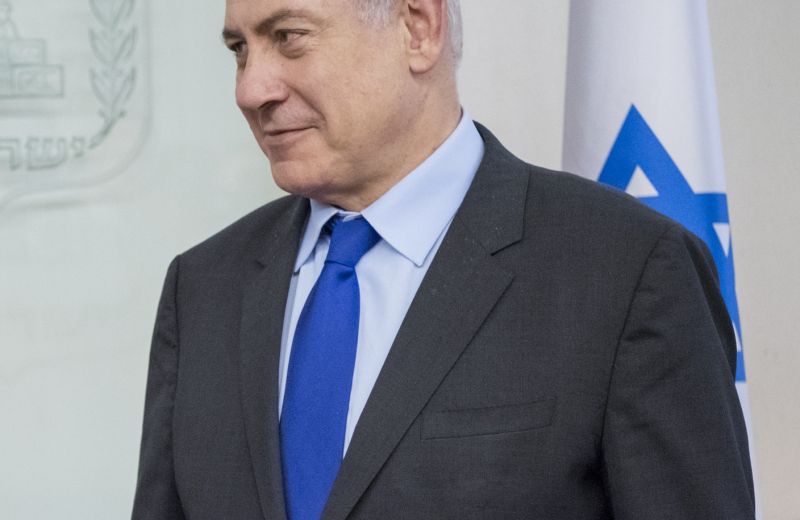 Op-eds
/ Strengthening Israel's Foreign Policy
Op-eds
/ Strengthening Israel's Foreign Policy
The visit by Prime Minister Benjamin Netanyahu will mark the first official trip to Australia by an Israeli head-of-state. His arrival is both an opportunity to enhance bilateral relations and for Canberra to clarify its position on the two-state solution.
It has been a busy month for Benjamin Netanyahu. For the third week in a row, Israel’s prime minister has journeyed outside of the Middle East in order to advance his country’s interests. But after enjoying high-profile meetings with British Prime Minister Theresa May and US President Donald Trump, Netanyahu’s world tour heads eastward, with stops in Singapore and Australia.
There is no denying that Netanyahu is making history. Operating as both prime minister and foreign minister, Netanyahu has expanded his international travel schedule, visiting corners of the globe familiar to Israeli backpackers but alien to most of their politicians. In the last year alone, Netanyahu’s passport has collected stamps from Uganda, Kenya, Rwanda, Ethiopia, Azerbaijan, and Kazakhstan. His arrival in Sydney this Wednesday will mark the first ever visit by an Israeli head-of-state.
Netanyahu’s jet-setting is indicative of a shift within Israel’s foreign policy strategy away from the United States and Europe. Israel is cognizant that the geopolitical order is shifting away from a unipolar world and is making preparations that will compensate for America’s withdrawal from the world stage. Frustrated with European ‘interference’ in its relationship with the Palestinians, Israel is casting a wide net in search for international partners who are less interested in the conflict. As the aforementioned list demonstrates, this approach has worked predominantly with non-democratic states.
This is not the case with Australia, which boasts strong democratic values, a robust economy and is both culturally and strategically linked with the West. Membership in the anglosphere is yet another important distinction. As Netanyahu will undoubtedly reiterate during his stay, Australia and Israel are natural partners and there are tremendous opportunities for cooperation on a host of issues—including cyber security, counterterrorism, environmental and agricultural sciences and of course high-tech.
But in fact, it is because of these unique qualities that the Australian government can use the same platform it is providing Netanyahu to articulate its own interests.
If Australia wants to contribute to peace in the Middle East, it should reaffirm its support of the two-state solution. The two-state solution has come under heavy scrutiny of late and it is unclear how committed the current US administration is to ensuring that Israelis and Palestinians reach that goal. Still, it was perplexing how Foreign Minister Julie Bishop could support Trump’s damaging “two-state, one-state” remarks just days after joining the near universal condemnation of a controversial Israeli law that retroactively legalizes all West Bank settler homes constructed on private Palestinian land.
Trump’s comments have emboldened Netanyahu’s rivals. Many believe it is only a matter of time before he is ousted from office—he is currently under investigation in multiple police cases—and challenging his position on the settlements is an easy way to score points. Those close to Netanyahu claim that the prime minister still supports the two-state solution, yet such reports are difficult to believe when he always appears to be in a fight for his political life. So goes the game of thrones that is Israeli domestic politics.
When international actors send mixed messages on the Israeli-Palestinian conflict, it only strengthens the radical camps in both societies—often bearing deadly results. Rather than limiting its involvement to rhetorical statements, the Australian government should try to incentivize Israeli efforts towards peace, perhaps by offering to facilitate dialogue between Israel and ASEAN’s Muslim-majority member states that have historically been reluctant to normalize relations with the Jewish State.
Alternatively, Australia could lend its support for the kind of US-led regional peace initiative that was pursued by the Obama administration and floated during the Trump-Netanyahu press conference in Washington, DC.
Both countries should be thinking as big when it comes to strengthening bilateral ties. The Israel Trade Commission and the Australia-Israel Chamber of Commerce provide a strong foundation for commercial ties to grow, and their efforts should be applauded. Still, taking the Australia-Israel relationship to the next level requires investment in new bilateral initiatives—similar to the industrial R&D agreement signed by Israel and the NSW government in April 2016—as well as expanding existing scientific exchange programs, establishing joint energy and water management projects, and creating room for future military exchanges.
The future of Australian-Israeli bilateral relations will ultimately be determined by the tone and content of the dialogue between their respective societies. If the last decade is any indication, there is legitimate reason for optimism. Still, the gravity of official state visits such as these should not be overlooked. With Netanyahu finally ‘Down Under’, Australia’s government has a historic opportunity to clarify its own position on the two-state solution at a time when international support is at an all-time low. Such a demonstration from a trusted ally may pressure Netanyahu to clarify some of his own dubious remarks, but more importantly it would resonate with Israelis who are tired of opportunistic politicians and seek international partners that will ‘talk straight’ when engaged in a face-to-face conversation.


